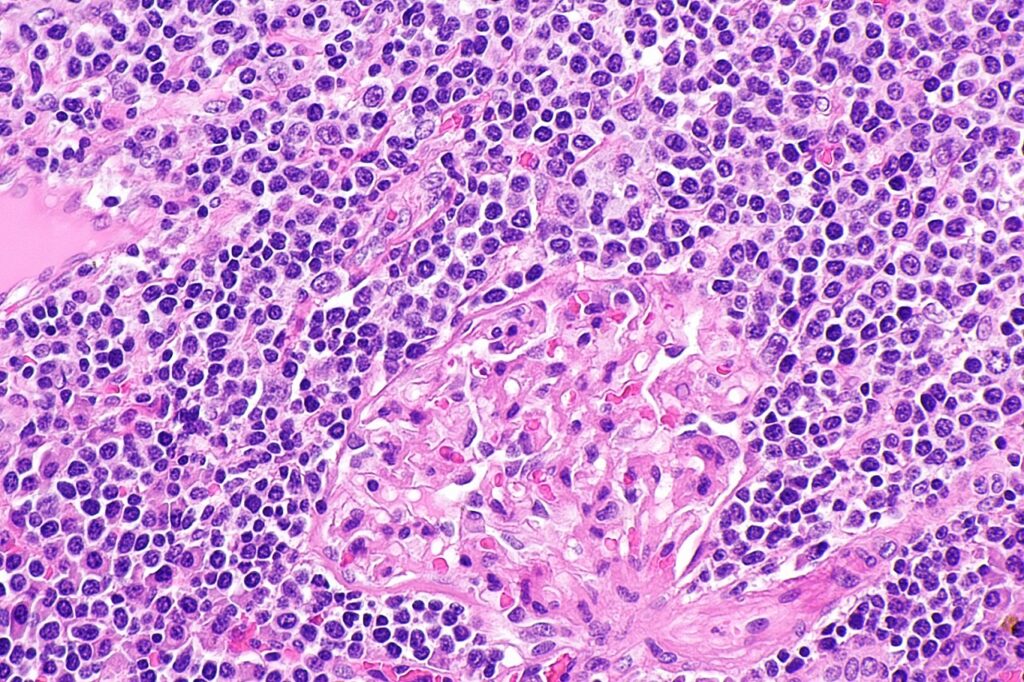BeiGene has secured marketing authorisation from the European Commission (EC) for Brukinsa (zanubrutinib) to treat marginal zone lymphoma (MZL) in adult patients.

Brukinsa has been approved for the treatment of marginal zone lymphoma in adult patients. Credit: Librepath / commons.wikimedia.org.
Subscribe to our email newsletter
Brukinsa has been approved to treat relapsed/refractory (R/R) MZL adult patients who have previously received at least one anti-CD20-based therapy.
The Bruton’s tyrosine kinase (BTK) small molecule inhibitor, Brukinsa is currently being assessed as a monotherapy as well as in combination with other therapeutics for the treatment of several B-cell malignancies.
The EC approval is applicable to all European Union’s (EU) 27 member states as well as Iceland and Norway.
It follows the Committee for Medicinal Products for Human Use (CHMP) of European Medicines Agency’s (EMA) positive opinion on Brukinsa, in September this year.
BeiGene Hematology chief medical officer Mehrdad Mobasher said: “We are proud of what this approval means for European MZL patients, who previously did not have an approved BTK inhibitor as a treatment option for this rare hematological malignancy.
“This milestone builds on the track record we’ve built with BRUKINSA to date, with approvals in more than 55 countries and regions, as we continue to fulfill our commitment to build a transformational global R&D model that enables broader, faster access to novel medicines.”
The regulatory approval is based on the data obtained from the single-arm, multicenter, open-label, international Phase II MAGNOLIA trial, which was conducted in R/R MZL patients who have previously received minimum one anti-CD-20 based regimen.
Brukinsa achieved 68% overall response rate with 26% of patients achieving complete remission in the trial.
It also provided quick and durable disease control with a median time to response of 2.8 months.
Pneumonia, anemia, neutropenia, and thrombocytopenia are the most common adverse events.
In the EU, Brukinsa is also approved to treat adult Waldenström’s macroglobulinemia (WM) patients who have previously received at least one therapy or for the first-line treatment of patients who are not suitable for chemo-immunotherapy.
 Advertise With UsAdvertise on our extensive network of industry websites and newsletters.
Advertise With UsAdvertise on our extensive network of industry websites and newsletters.
 Get the PBR newsletterSign up to our free email to get all the latest PBR
news.
Get the PBR newsletterSign up to our free email to get all the latest PBR
news.

